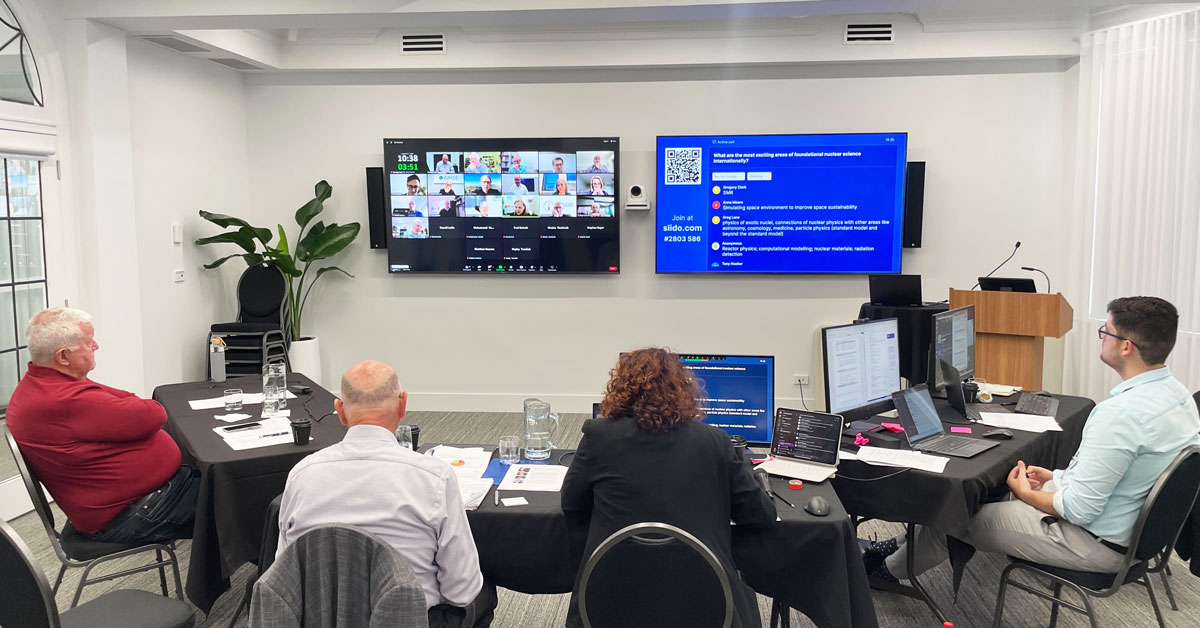
Maintain the health of Australians through medical research and its translation into care. Defend Australia. Meet our space ambitions. None of this can be achieved without increasing Australian nuclear science capabilities.
That is the conclusion reached by experts at a national nuclear science roundtable hosted recently by the Australian Academy of Science.
The roundtable determined that Australia’s nuclear science sector needs a national strategy that leads to new knowledge and infrastructure and equips Australians for jobs in this expanding sector.
The online forum brought together multidisciplinary experts from fields including nuclear physics, nuclear medicine, radiation science, space, nuclear waste management, environmental science, and nuclear regulation and diplomacy.
The roundtable was chaired by Emeritus Professor Lawrence Cram.
“Basic research is key to Australia’s ability to have a successful applied nuclear science sector and to be able to benefit from new technological developments and mitigate sovereign risk,” Emeritus Professor Cram said.
“There is also a critical need for informed debate and respectful deliberation to inform decision-making and improve public understanding of nuclear science and the benefits it can bring to Australia.”
The experts concluded that new technologies and hands-on experiences would inspire students and improve nuclear science literacy in schools. Nuclear science will provide new careers across Australia, requiring additional undergraduate and postgraduate courses.
A survey of experts conducted prior to the roundtable found 74% believed that if Australia’s core nuclear science capabilities were not strengthened, there is a high risk of increased misinformation about nuclear science.
The participants of the national roundtable called for:
- an independent knowledge broker between academia, industry and government to advise on national needs and opportunities that require nuclear science in all its dimensions
- a national strategy that:
- identifies opportunities to grow education pathways in nuclear science, including the potential to expand existing programs
- details the infrastructure required to train nuclear scientists, conduct novel foundational and applied research, and promote multisector collaborations
- outlines a communications plan to help the Australian public to engage with nuclear science.
The Academy’s President, Professor Chennupati Jagadish said the AUKUS agreement has increased awareness of critical gaps in Australia’s fundamental and applied nuclear science capabilities.
“A scaling up of nuclear science capabilities is needed to transform our ageing nuclear science infrastructure and to plug the current deficits in our knowledge and skills so that we can meet our national ambitions,” Professor Jagadish said.
The Academy will publish a summary of the roundtable in 2024.







